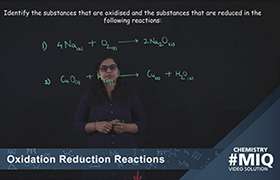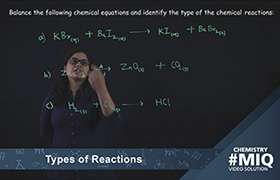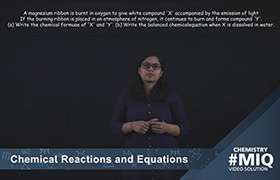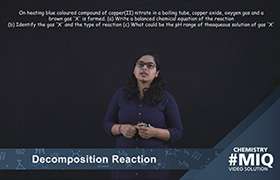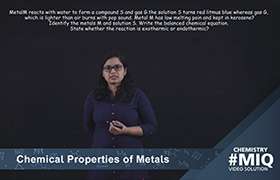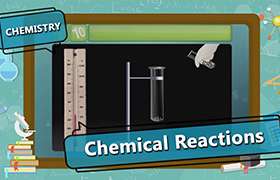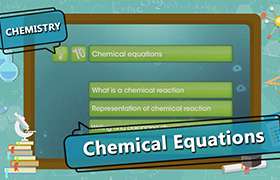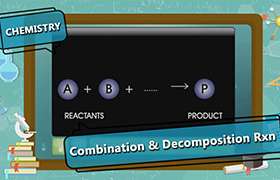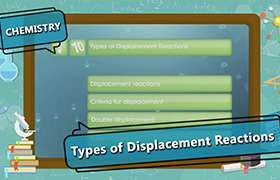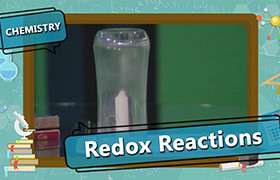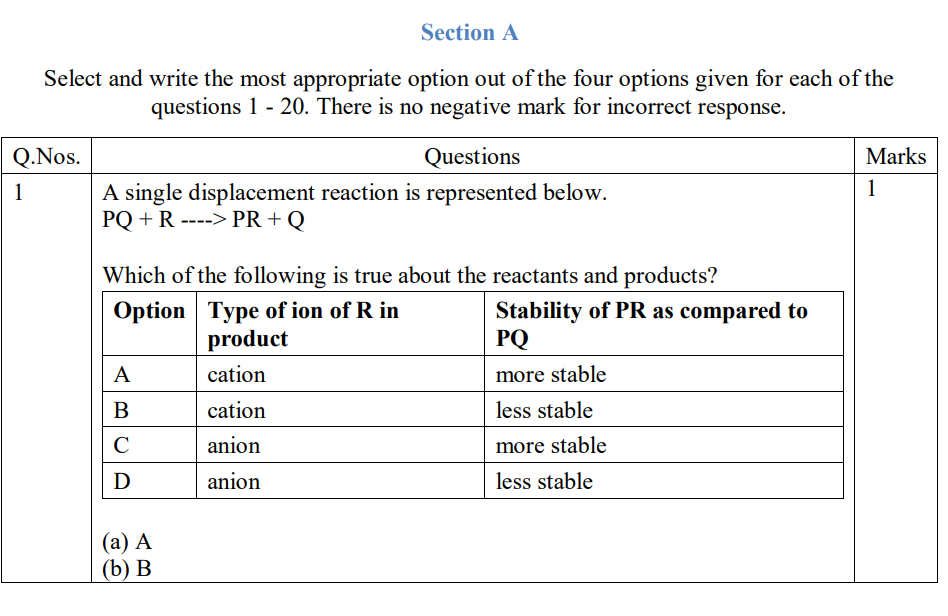CBSE Class 10 Answered
What is the difference between redox reactions and oxidation and reduction reactions ?
Asked by shivamkumar3400 | 12 Jul, 2016, 07:49: PM
Oxidation is loss of electrons.
Example:
Mg → Mg2+ + 2e
Here, magneisum has oxidised by loss of electrons to form magnesium cation.
Reduction is gain of electrons.
Example:
Mg2+ + 2e → Mg
Here, magnesium cation got reduced to magnesium metal.
Redox means reduction and oxidation taking place in the same reaction then it is called as redox reaction.
Example:
Consider the reaction between zinc metal and hydrochloric acid.
Zn(s) + 2 HCl(aq) → ZnCl2(aq) + H2(g)
If this reaction where broken down to the ion level:
Zn(s) + 2 H+(aq) + 2 Cl-(aq) → Zn2+(aq) + 2 Cl-(aq) + 2 H2(g)
Zinc atom loses two electrons to become a Zn2+ ion so undergo oxidation,
Zn(s) + 2 HCl(aq) → ZnCl2(aq) + H2(g)
If this reaction where broken down to the ion level:
Zn(s) + 2 H+(aq) + 2 Cl-(aq) → Zn2+(aq) + 2 Cl-(aq) + 2 H2(g)
Zinc atom loses two electrons to become a Zn2+ ion so undergo oxidation,
Hydrogen ions are gaining electrons and bonding together to form dihydrogen gas. So undergo reduction.
Hence thi reaction is redox reaction.
Answered by Prachi Sawant | 13 Jul, 2016, 10:39: AM
Application Videos
Concept Videos
CBSE 10 - Chemistry
Asked by sagarmishra | 04 Mar, 2024, 09:50: AM
CBSE 10 - Chemistry
Asked by 09.10bjanvhijadhav | 02 Mar, 2024, 08:22: AM
CBSE 10 - Chemistry
Asked by prassanna.j | 01 Mar, 2024, 11:59: AM
CBSE 10 - Chemistry
Asked by yadavparmit83 | 01 Dec, 2023, 06:16: AM
CBSE 10 - Chemistry
Asked by susrisangita792 | 17 Nov, 2023, 08:27: PM
CBSE 10 - Chemistry
Asked by ramjilal01071988 | 14 Oct, 2023, 08:42: PM
CBSE 10 - Chemistry
Asked by dikshantnaik1008 | 21 Jul, 2023, 11:47: AM
CBSE 10 - Chemistry
Asked by susrisangita792 | 07 Jun, 2023, 11:54: AM
CBSE 10 - Chemistry
Asked by shoaibhakak41 | 18 Jan, 2023, 02:17: PM
CBSE 10 - Chemistry
Asked by nehashekh291 | 03 Jan, 2023, 03:11: PM

